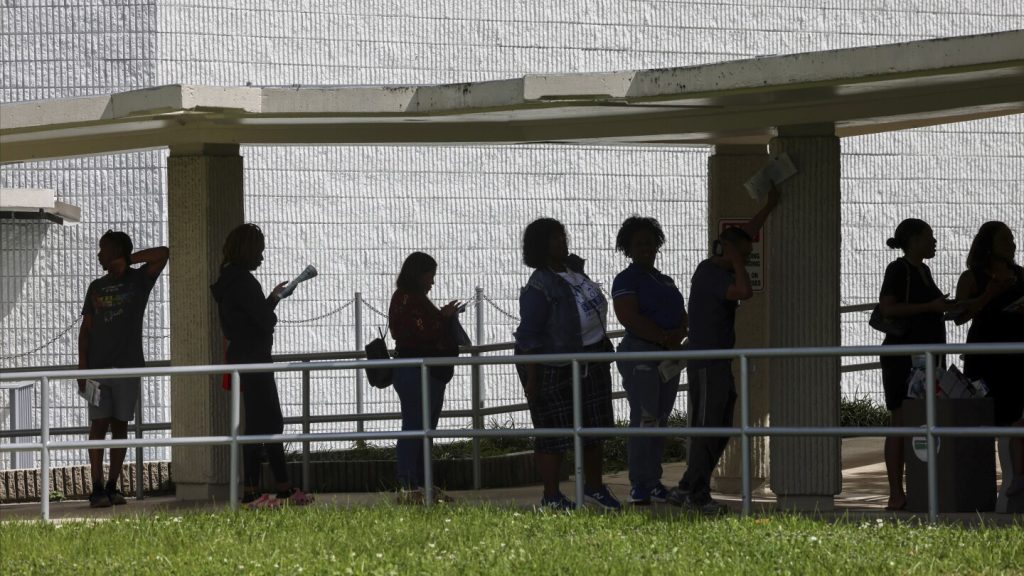Florida’s upcoming election is set to test whether the state will maintain its Republican stronghold status or if Democrats will make gains by tapping into support for abortion and marijuana ballot questions, as well as the energy brought by Vice President Kamala Harris. Despite the state’s reputation as a swing state in the past, Republicans have seen significant victories in recent elections, with Democrats hoping that constitutional amendments supporting abortion rights and recreational marijuana will drive voter turnout and potentially shift the balance.
The only statewide office on the ballot is the Senate seat currently held by Republican Senator Rick Scott, who is being challenged by former Democratic U.S. Rep. Debbie Murcarsel-Powell. While the race has been overshadowed by other high-profile elections, such as the presidential election, the abortion, and marijuana ballot questions are drawing significant attention from both sides. Democratic Party Chairwoman Nikki Fried sees the potential for success in flipping legislative seats and passing the amendments, even if Trump and Scott win in Florida.
Despite the optimism from Democrats, the uphill battle remains, with the constitutional amendments requiring 60% voter support, which might be challenging due to the significant funds being spent against them. Republican political strategist Jamie Miller believes that Democrats are more motivated to vote against Republicans they dislike rather than being inspired by their own candidates. While Scott has a history of winning elections by slim margins, the shifting demographics in Florida, with Republicans now outnumbering Democrats, present a challenge for Democratic candidates.
Governor Ron DeSantis, who was not on the ballot, played a significant role in campaigning against the abortion rights and marijuana amendments, utilizing state agencies to provide information and push back against the measures. The abortion amendment seeks to protect women’s rights up to the point the fetus can survive outside the womb, while the marijuana amendment aims to legalize recreational marijuana, following the approval of medical marijuana in 2016. The issue has sparked significant debate and spending from both sides.
While most of Florida’s congressional seats are not competitive, the state will see at least one new member elected to Congress, with former Senate President Mike Haridopolos favored to replace retiring Republican Rep. Bill Posey. The election will also determine the makeup of the state Legislature, with Democrats hoping to flip enough seats to remove the supermajority held by Republicans. Key races, such as Republican Senator Corey Simon being challenged by civil rights lawyer Daryl Parks, highlight the importance of down-ballot races in shaping the political landscape of Florida.
Overall, the 2022 election in Florida presents a critical moment for both parties, with Democrats aiming to leverage support for key ballot questions and close the gap with Republicans in a state that has traditionally leaned right. The outcome will not only shape the political future of Florida but may also have implications for national politics, as the state continues to be a key battleground in presidential elections. The efforts and strategies deployed by both parties in this election will set the tone for future contests and potentially define the direction of the state’s political landscape.


